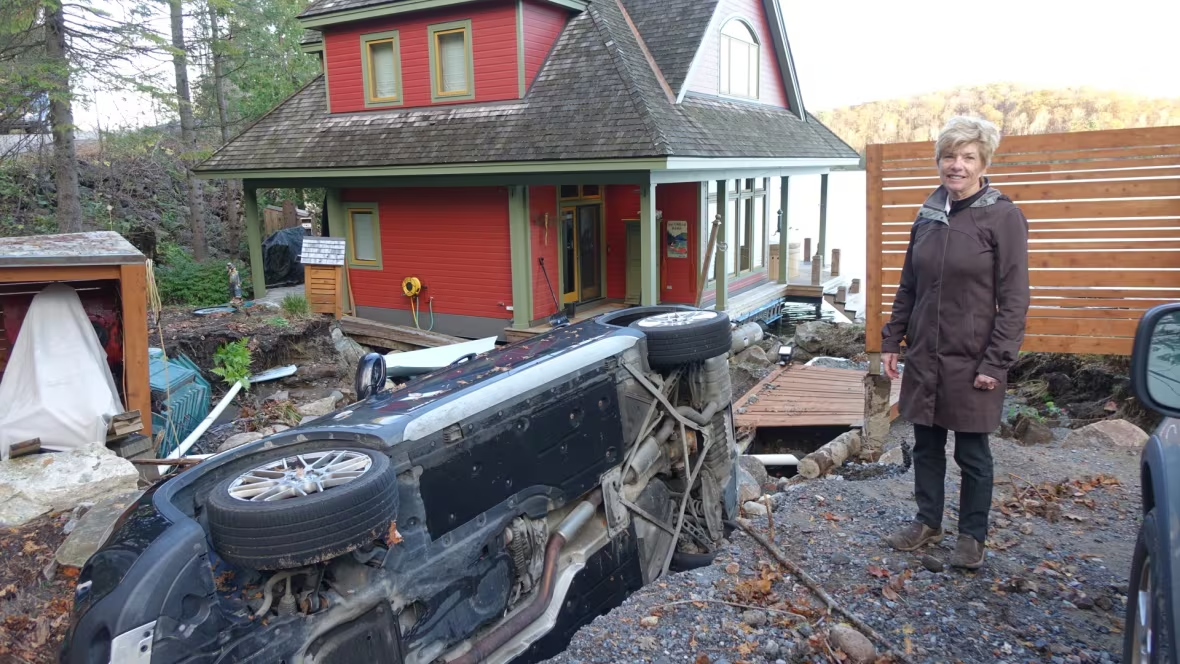West Quebec mayors grapple with 'new normal' after latest floods
Weekend deluge overloaded culverts, washed away roads across region

Joanne Hamilton heard the water before she saw it.
It was 5:30 a.m. Monday, and the rain had been pouring down all night. With the power out, Hamilton and her husband Philip felt their way to the front door of their home on Meech Lake to peer outside.
In the dim predawn light they saw the torrent of muddy water tear away trees and wash away soil, and watched as their driveway disintegrated and their car slowly tipped into a newly carved ditch.
"It's very scary," Hamilton said. "All of a sudden climate change is so real to us when we have a disaster that affects us personally."
State of emergency
That's how many municipalities across west Quebec are feeling this week in the aftermath of the record-breaking storm.
We have to be ready to deal with situations like that because they're going to happen more and more.- Gatineau Mayor Maxime Pedneaud-Jobin
As they assess the latest damage, which comes toward the tail end of a year of destructive flooding across the region, they're also wondering how their communities can mitigate the costly impact of these weather events that seem to have become the new normal.
"It makes me wonder if that's the new tendency of the weather," said La Pêche Mayor Robert Bussière. "It seems to be amplifying all the time, so we really don't know what to expect now."
The municipality declared a state of emergency after communities such as Wakefield suffered flooding and mudslides that cut whole neighbourhoods off from main roads.
"We've been hit twice in three weeks," said Bussière.
One of the washed-out culverts was recently widened to accommodate greater volumes of water.
"We will have to do a study to be able to repair these things for the future and not have disasters again, and that will cost a lot of money," Bussière said.
Gatineau assessing infrastructure
The mayor of Gatineau said his city will also need to take a long, hard look at the state of its infrastructure.

Pontiac MP Will Amos said rural communities in his riding were hit especially hard, but don't have the tax base to pay for a major infrastructure overhaul to handle increasingly severe weather.
"We have a number of municipalities that have lost millions and millions of dollars worth of infrastructure this year," said Amos.
He said he will be helping communities access financing through the federal government's disaster mitigation and adaptation fund.
On Meech Lake, Hamilton said she's thought about whether it makes sense to stay in that location, but decided their "dream home" is worth saving.
"We'll fix this. We'll get over it."